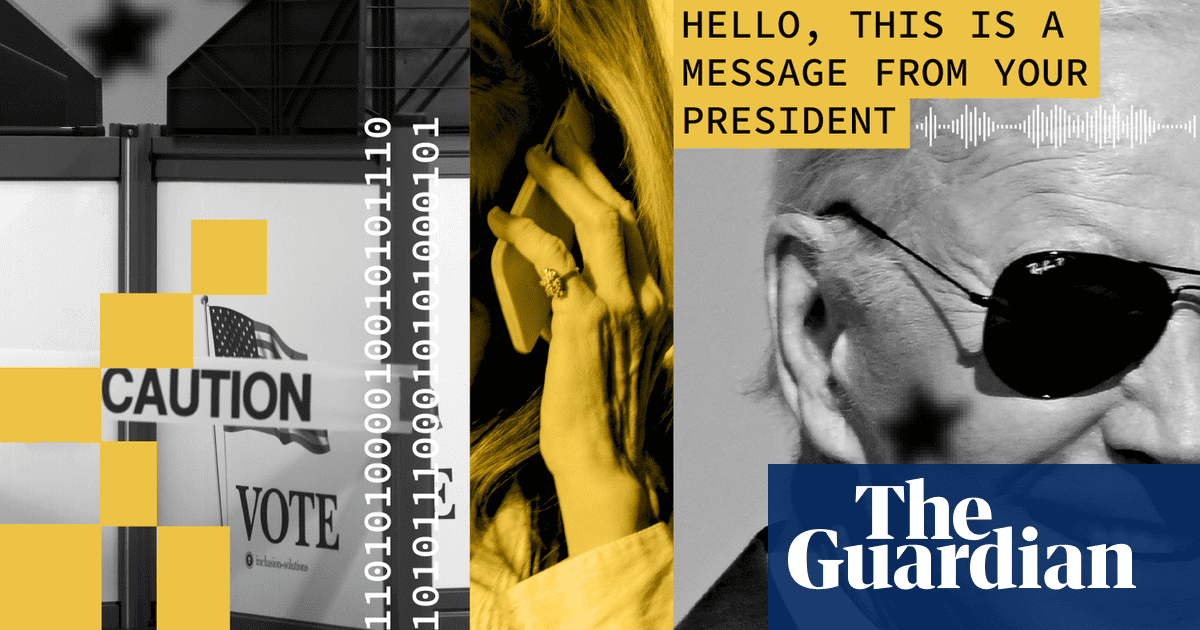- cross-posted to:
- news
- cross-posted to:
- news
‘Disinformation on steroids’: is the US prepared for AI’s influence on the election?::Robocalls of President Biden confused voters earlier this month – but measures to curb the technology could be too little too late
We weren’t prepared for NORMAL disinformation much less AI disinformation.
Weren’t and STILL ain’t
We’re not even prepared for complicated factual information
No.
I like how the media is great at calling out very real dangers, but on a 5- to 10-year delay.
sigh
Bro we’re not even prepared for informations effect on the election.
“Democracy dies in discussion”
For real though, its so vitrolic right now that even anything seeming like mild critism for one team is seen as an attack on the future of humanity.
Its worse than I’ve ever seen it, and I was fully there for 2014-2016.
This is the best summary I could come up with:
Already this year, a robocall generated using artificial intelligence targeted New Hampshire voters in the January primary, purporting to be President Joe Biden and telling them to stay home in what officials said could be the first attempt at using AI to interfere with a US election.
It’s not clear if the deepfake calls actually prevented voters from turning out, but that doesn’t really matter, said Lisa Gilbert, executive vice-president of Public Citizen, a group that’s been pushing for federal and state regulation of AI’s use in politics.
In Indonesia, an AI-generated avatar of a military commander helped rebrand the country’s defense minister as a “chubby-cheeked” man who “makes Korean-style finger hearts and cradles his beloved cat, Bobby, to the delight of Gen Z voters”, Reuters reported.
There are less misleading uses of the technology to underscore a message, like the recent creation of AI audio calls using the voices of kids killed in mass shootings aimed at swaying lawmakers to act on gun violence.
A recent pact among companies such as Google, Meta, Microsoft and OpenAI includes “reasonable precautions” such as additional labeling of and education about AI-generated political content, though it wouldn’t ban the practice.
At the national level, or with major public figures, debunking a deepfake happens fairly quickly, with outside groups and journalists jumping in to spot a spoof and spread the word that it’s not real.
The original article contains 1,210 words, the summary contains 231 words. Saved 81%. I’m a bot and I’m open source!






